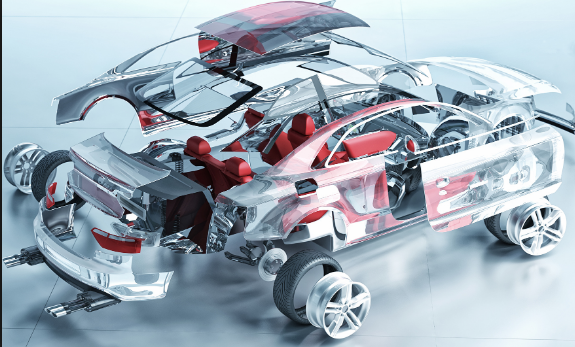An idle air control valve, abbreviated as IAC, alters the amount of air flowing into the engine when the engine of a stationary vehicle is running. The running of the engine while the automobile is not in motion is generally known as idling. This generally occurs while waiting for someone, while stopping at a traffic light, etc. Technically speaking, at the time of idling, the engine runs without any load other than engine accessories.
The idle air control valve is regulated by the ECM. The ECM or the engine control module is basically a monitoring component or the brain of the car that keeps the operation of all the electronically controlled parts of the car, including the engine, in check during idling. The engine control module uses the idle air control valve or IAC valve to control the amount of air intake that is permissible to bypass the throttle intake plate, thus maintaining a constant idle speed of the engine.
A perfect idling speed of an engine is very important to the engine work life, and an idle air control valve is vital to the safety and economy of the parts of the automobile engine. When the car starts for the first time in the morning, the engine is cold and requires more air for idling. Also, at the time of idling, the engine RPM is at its minimum. Owing to this, the automobile is likely to face issues while restarting on a high altitude due to lesser air density that restricts the inflow of air to the engine. In such conditions, the engine control module comes into play and adjusts the idle air control valve in a manner that allows more air to pass through it to facilitate smooth idling.
Request For Report Sample @ https://www.futuremarketinsights.com/reports/sample/rep-gb-6994
Automotive Idle Air Control Valve Industry: Market Dynamics
The main factor behind the growth of the automotive idle air control valve market is the expansion of production in the automobile sector across the globe. Increase in the number of R&D initiatives that lead to the development of new products and increase the scope of end-use applications are also among factors expected to boost the global automotive idle air control valve market. Also, the increasing focus of companies on decreasing the overall weight of automobiles by integrating electronic components in place of manual components is also anticipated to drive the market for automotive idle air control valves. Apart from this, the automotive idle air control valve is an integral component of all automobiles, and hence, the development of automobile industries will also contribute to the growth of the global automotive idle air control valve market.
Automotive Idle Air Control Valve Market Segmentation
Automotive idle air control valve market can be segmented on the basis of end use as follows:
Light Commercial Vehicles
Heavy Commercial Vehicles
Passenger Cars
Two and Three Wheelers
Sports Cars
Automotive idle air control valve market can be segmented on the basis of sales channel as follows:
Original Equipment Manufacturers (OEM)
Aftermarket
Automotive Idle Air Control Valve Market: Regional Outlook
Europe holds a major share of the global automotive idle air control valve market owing to the presence of prominent Original Equipment Manufacturers (OEM) in this region. Europe is followed by North America. North America and Europe are estimated to hold more than half of the total shares of the global market of automotive idle air control valve. However, Asia Pacific is expected to exhibit significant growth in the forecast period owing to various factors such as a much lower concentration of automobiles as compared to developed countries, increase in per capita income of countries in this region and government initiatives in countries such as India and China to attract foreign direct investment & to increase production. The rest of the world is estimated to account for a relatively small share of the automotive idle air control valve.
Automotive Idle Air Control Valve Market: Key Market Players
Some of the market participants in the automotive idle air control valve market identified across the value chain are:
Robert Bosch Gmbh
Delphi Powertrain Systems
Continental Automotive Group
Edelbrock, LLC
Gb Remanufacturing Inc.
DENSO Powertrain Control Systems
Hitachi Automotive Systems
Request For Report Table of Content (TOC): https://www.futuremarketinsights.com/toc/rep-gb-6994



